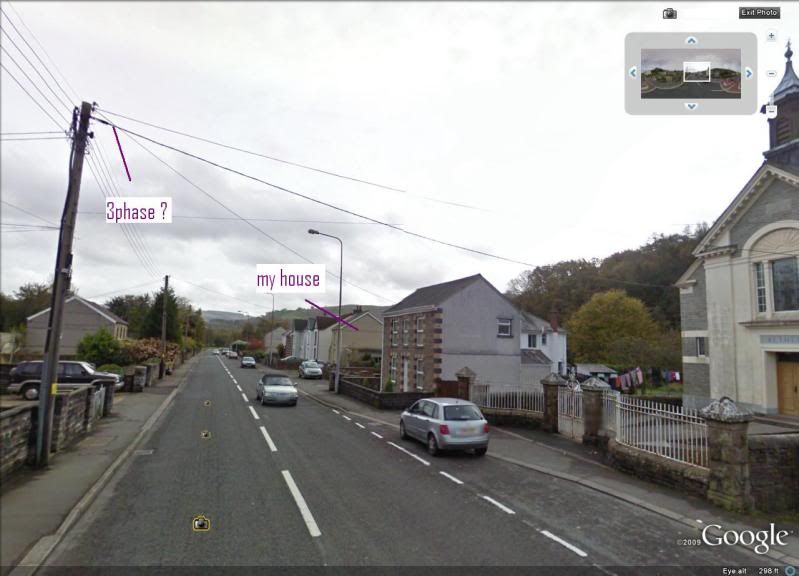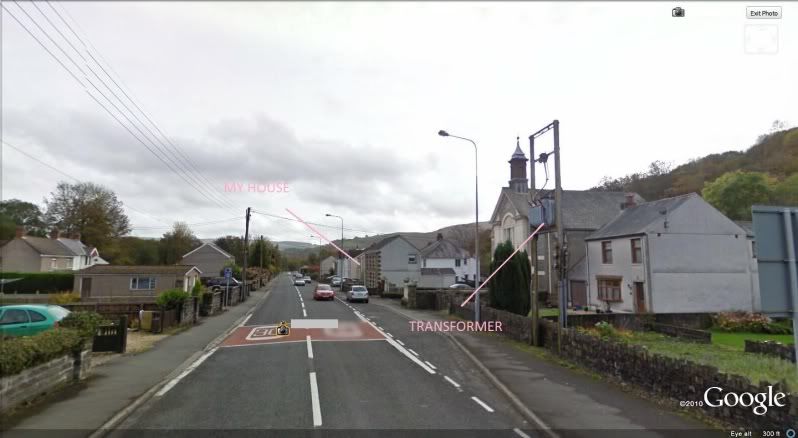K Battenbough
Cast Iron
- Joined
- Aug 21, 2005
- Location
- Swansea, South Wales
Good morning Gents
Ive recently bought a property and in about 6 months time, im looking at building a workshop attached to the property at the back, where I can walk into, from the house. My main concern is getting 3 phase power to it, im not 100% on where all the power cables are, but 3 doors down, it looks like the church has 3 phase going to it (for the organ I guess), from the telegraph pole across the road (see pic). Does anyone from the UK have any experiance getting 3 phase to a residential property? especially from over head? and have any idea on cost?

Thanks
KB
Ive recently bought a property and in about 6 months time, im looking at building a workshop attached to the property at the back, where I can walk into, from the house. My main concern is getting 3 phase power to it, im not 100% on where all the power cables are, but 3 doors down, it looks like the church has 3 phase going to it (for the organ I guess), from the telegraph pole across the road (see pic). Does anyone from the UK have any experiance getting 3 phase to a residential property? especially from over head? and have any idea on cost?

Thanks
KB




